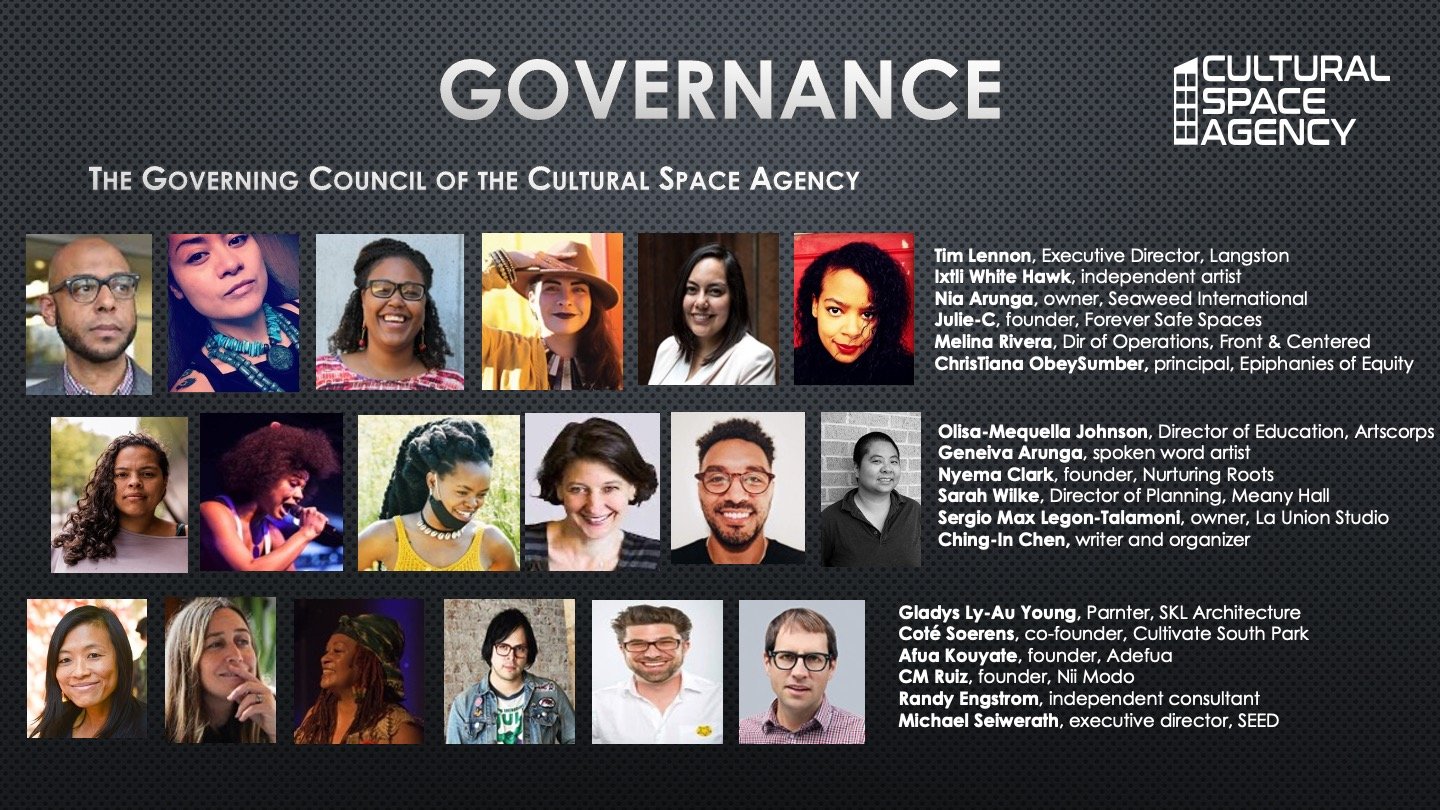
OVERVIEW
The Cultural Space Agency is a mission-driven, values-based cultural real estate development company chartered by the City of Seattle as a Public Development Authority (PDA). It is designed to secure long-term affordable commercial cultural space with community partners; to build community wealth through direct investment in real property; to create opportunities for ownership of commercial cultural space; and to partner with communities of color, with a particular focus on the needs of Black and Indigenous communities.
It has been designed by community stakeholders, has been the subject of a Racial Equity Toolkit, is supported by the directors of eleven City Offices and Departments, is led by a diverse group of stakeholders, and is significantly supported by the City of Seattle. Its launch is the culmination of the City’s nearly decade-long focus on addressing critical issues facing Seattle’s cultural spaces.

PROPERTIES AND PROJECTS
There are many versions of site control that can benefit cultural communities. Initial strategies for the Cultural Space Agency include:
Purchase properties. Own entire buildings, or condominium-sized portions of buildings, and share that equity with community partners to create and preserve destinations, anchors, and powerful assets in the community.
Develop new properties. In partnership with housing providers, create new buildings centered in cultural communities, creating affordable residential, commercial, and cultural spaces.
Master-lease and sublease property. Serving as a leasing intermediary provides longevity, stability, and predictability for both the cultural partners and the spaces’ owners.
Manage and curate sites for owners who maintain site control themselves. Provide short-term, quick-access, and popup space for artists, projects, and organizations.
The projects that show up in the spaces controlled by the Cultural Space Agency will be the most important aspect of how this organization shows up in the community. Potential space uses include:
Individual artist studio spaces. This is the highest-demand type of cultural space in Seattle.
Arts and cultural projects. These are short-term shows, screenings, exhibitions, and other
types of art projects and displays.
Arts and cultural organizations. This is long-term space for organizations to either lease or to partner on ownership models.
Community-serving small businesses. Space for small businesses working with and for community stakeholders.
GOVERNANCE
At its core, the Cultural Space Agency is driven by a group of BIPOC stakeholders called The Constituency. The Constituency is a group of Black, Indigenous, and other People of Color who are leaders in the worlds of Commercial Real Estate, Arts & Culture, Community Development, Philanthropy, and Finance.
To join the Constituency, one must be a graduate of the City of Seattle’s Build Art Space Equitably (B.A.S.E.) certification cohort, or be added to the Constituency by a vote of the existing membership. The Constituency drives three crucial areas of decision-making for the Space Agency:
Council Membership: The Constituency nominates individuals to the organization’s governing Council. Council nominees are passed up to the Mayor of Seattle, who presents the list to City Council for approval. Governing Council nominees will be drawn from the communities most impacted by the disproportionate effects of institutional racism, and other forms of institutional marginalization. Council nominees will be sought who are engaged in the fight for equitable cultural development.
Property Investments: The Constituency leads the Agency committee charged with vetting opportunities for property investments. Whether to acquire a historic theater, or master lease a new ground floor in a mixed-use project, or develop a piece of property with a housing provider, the Constituency will formally review opportunities for the control of commercial real estate and make recommendations to the organization’s staff and governing Council.
Cultural and Community Partnerships: The Constituency will also nominate, and vet proposals from, small businesses and cultural organizations seeking partnership and seeking site control. Small arts organizations seeking space for a specific program, or individual artists seeking studio or rehearsal space, or stable institutions seeking ownership opportunities for permanent facilities, will all be sought, mentored, and recommended for partnership to the staff and governing council.
VALUES
The Cultural Space Agency is driven by a series of values that have been articulated throughout its development:
Keep Race in the Room: Center the needs of communities of color.
Build Community Wealth: Create structures that support literal property ownership by community members and organizations.
Who Decides Who Decides?: Create transparent decision-making pathways where power flows from community to organizational leadership.
Assets are not Always Financial: Find ways to value intergenerational knowledge, sweat equity, cultural traditions, social networks, and other non-financial assets found in the community.
Always be Learning: Question dominant cultural assumptions and be inquisitive.
BUILDING COMMUNITY WEALTH
The unprecedented recent growth in the value of Seattle’s real estate has exacerbated racial economic disparities that draw their origins back to redlining and beyond. This program is explicitly a community wealth-building strategy, designed to offer community-based organizations and individuals living at high risk of displacement an opportunity to invest in a piece of the neighborhoods where they have created such value.
Where the Cultural Space Agency partners with organizations interested in ownership, it can stand in as initial bridge capital to secure sites and cede ownership over time, as the partner organization adds capacity to take over ownership. Mission-committed impact investments, philanthropy, and City capital can all serve as a rotating loan fund to ensure the organizational partners have the opportunity to continue to acquire equity as their capacity increases.



